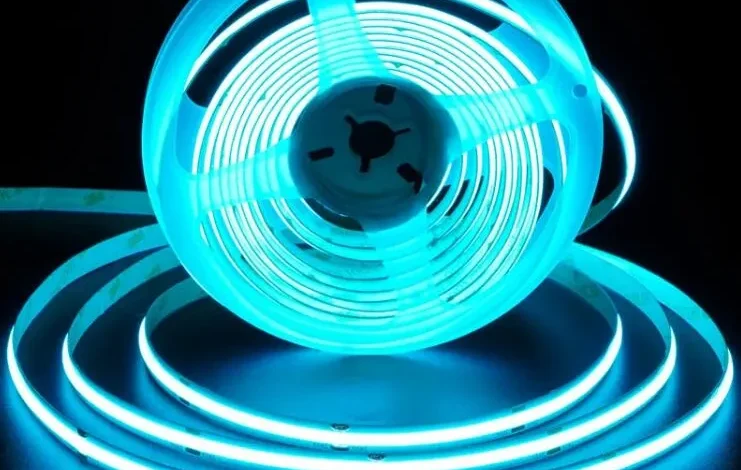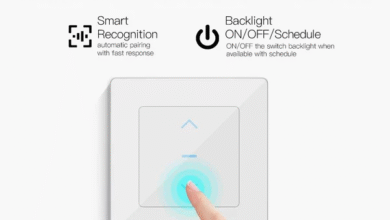
In today’s fast-paced lighting industry, LED strip lights have become essential for everything from ambient home decor and commercial interiors to industrial lighting and custom installations. As demand continues to surge, sourcing the right products from the right manufacturer is more crucial than ever.
Choosing an LED strip lights manufacturer is not just about cost—it’s about reliability, quality, service, and scalability. A poor manufacturing partner can lead to low-quality products, missed deadlines, compliance issues, and customer dissatisfaction. On the other hand, a strong manufacturer becomes a long-term partner in your business growth.
This step-by-step guide will walk you through how to properly evaluate an LED strip lights manufacturer, so you can make an informed decision and avoid costly mistakes.
Step 1: Define Your Requirements Clearly
Before you evaluate manufacturers, define your specific needs. Without clarity, you won’t know what to look for—or how to measure it.
Ask Yourself:
-
What is my target market? (retail, residential, industrial, commercial)
-
What LED strip specifications do I need? (voltage, CRI, IP rating, chip brand)
-
Do I need customization or OEM services?
-
What’s my expected order volume and frequency?
-
Do I need certifications for export or resale (e.g., UL, CE, RoHS)?
Clear requirements help you filter out manufacturers that don’t align with your business goals.
Step 2: Check Manufacturer Credentials and Experience
A reputable LED strip lights manufacturer will have:
-
Several years of experience in the industry
-
A physical factory, not just a trading office
-
Technical engineers and R&D staff
-
Export licenses and business registration
-
Proven track record with global clients
Ask for:
-
Business license or factory registration
-
Export history or major clients (with case studies or testimonials)
-
Factory photos or virtual tour videos
Tip: Look for manufacturers who participate in global lighting exhibitions like Light + Building or the Hong Kong Lighting Fair. This shows commitment and industry involvement.
Step 3: Evaluate Product Quality and Technology
Review Samples
Always ask for product samples before making a bulk order. Evaluate:
-
Brightness and uniformity
-
Color temperature and consistency
-
Build quality (PCB, solder joints, coating)
-
Adhesive strength and flexibility
-
Performance under stress (bend test, heat test)
Ask About Components:
-
LED Chips: Are they branded (e.g., Samsung, Osram) or generic?
-
PCB Material: Is it 2oz copper for good heat dissipation?
-
Driver Compatibility: Can it be used with your power supply and dimmers?
-
Waterproofing: Do they offer IP65, IP67, IP68 ratings? What method is used—silicone, PU, extrusion?
Also, check if the manufacturer offers COB (Chip-on-Board) or high-density SMD options.
Step 4: Confirm Certifications and Compliance
If you plan to sell in markets like North America, the EU, or the UK, compliance is critical. Ask if the products are certified under:
-
UL, ETL (for North America)
-
CE, RoHS, REACH (for Europe)
-
FCC (for radio interference)
-
ISO 9001 (for quality management)
Tip: Don’t just take their word for it—request the actual certificates and verify their authenticity through issuing bodies.
Step 5: Investigate Customization and OEM Capabilities
If you’re looking to launch a private label or need custom specs, evaluate the manufacturer’s ability to deliver customized solutions.
Key Points to Consider:
-
Can they print your logo on the PCB or packaging?
-
Do they support branded boxes, reels, and manuals?
-
What’s their minimum order quantity for customization?
-
Can they create custom-cut lengths, connectors, or smart features?
Good manufacturers will have dedicated OEM project managers and offer design mockups before production.
Step 6: Assess Communication and Customer Support
Strong communication can make or break your relationship with a supplier. During initial talks, take note of:
-
Response time
-
Language fluency
-
Willingness to provide technical advice
-
Clarity in quotations and timelines
-
Understanding of your business model and market
Tip: Ask to speak to a dedicated account manager. Reputable manufacturers assign one to handle your project from start to finish.
Step 7: Review Production and Quality Control Processes
Ask for detailed information on how they handle quality control.
Key Questions:
-
Do you test every batch or just sample testing?
-
What’s your defect rate and how do you handle product failures?
-
Do you perform aging tests (burn-in) for reliability?
-
Can you share factory inspection reports or videos?
A top-tier manufacturer will have an internal QA team, and may even support third-party inspections upon request.
Step 8: Understand Lead Times and Logistics
Ask the manufacturer about:
-
Average production lead times (standard vs. custom orders)
-
Shipping options (FOB, CIF, DDP)
-
Partnerships with freight forwarders
-
Warehousing capabilities or local inventory (if any)
You’ll want a partner who can deliver on time, especially during peak seasons or for time-sensitive installations.
Step 9: Analyze Pricing and Payment Terms
Lowest price doesn’t always mean best value. Ask for:
-
A full price breakdown (including accessories, packaging, shipping)
-
Discounts for bulk or long-term orders
-
Accepted payment methods (T/T, PayPal, LC)
-
Payment structure (e.g., 30% deposit, 70% on delivery)
Be wary of prices that are significantly below market average—this often signals poor component quality or risky sourcing.
Step 10: Request References or Testimonials
Finally, ask for references from past customers in your region or industry. Ask:
-
How was their experience with this supplier?
-
Was the product quality consistent?
-
Were there any delivery or support issues?
-
Would they reorder?
Direct feedback from real buyers is one of the best ways to validate your decision.
Final Thoughts
Finding the right LED strip lights manufacturer is a strategic business decision—not just a sourcing task. By following this step-by-step evaluation process, you can confidently choose a partner that aligns with your quality standards, business goals, and market needs.
Remember: A good manufacturer doesn’t just sell you lights—they help you build a sustainable, profitable, and scalable lighting brand.
Need help shortlisting or evaluating LED strip light suppliers?
I can assist you in crafting an evaluation checklist, inquiry emails, or supplier comparison matrix. Just send over your product requirements!



